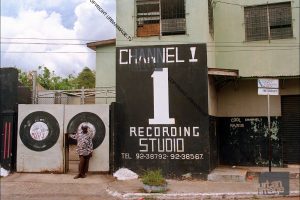The Enduring Importance of Jamaican Dancehall and Reggae Music: “A Cultural and Political Force”

Jamaica is known around the world for its vibrant music scene, which encompasses a wide variety of genres, including reggae, ska, dub, and dancehall. Among these, Jamaican dancehall and reggae music have emerged as two of the most popular and influential forms of music from the island nation. Over the years, these genres have become more than just forms of entertainment; they have become a cultural and political force that has had a lasting impact on Jamaica and beyond.
Reggae Music: A Cultural Icon
Reggae music has been a cultural icon for Jamaica since the 1960s, when it emerged from a blend of traditional Jamaican music and American rhythm and blues. One of the key figures in the development of reggae was Bob Marley, whose music brought attention to the struggles of Jamaican people and spread a message of love and unity around the world. Marley’s lyrics often spoke about issues such as poverty, oppression, and racism, and his music became a rallying cry for people fighting for social justice and equality.
Today, reggae music continues to be a powerful cultural force in Jamaica and beyond. It has been recognized as an important part of the island’s heritage and is celebrated through events such as the annual Reggae Month in February. Reggae music is also a major tourist attraction, drawing thousands of visitors each year who come to experience the unique sound and culture of Jamaica.
Dancehall Music: A Political Force
Dancehall music is another popular genre that has emerged from Jamaica. Unlike reggae, which often focuses on political and social issues, dancehall music is known for its upbeat tempo and catchy rhythms. However, over the years, dancehall music has also become a political force in its own right. Many dancehall artists use their music to address social and political issues, such as poverty, violence, and police brutality.
One of the key figures in the development of dancehall music was the late Sugar Minott, who was known for his socially conscious lyrics and advocacy for the rights of poor Jamaicans. Minott’s music often spoke about the struggles of life in the ghetto and the need for social change. Today, dancehall music continues to be an important platform for social and political commentary in Jamaica, with many artists using their music to address issues such as corruption, inequality, and violence.
The Cultural and Political Impact of Jamaican Music
The impact of Jamaican music goes beyond just the music itself. It has also had a profound cultural and political impact on Jamaica and beyond. For example, reggae music played a key role in the struggle for independence in Jamaica, with artists such as Bob Marley using their music to inspire people to fight for their freedom.
In addition, Jamaican music has had a significant influence on the global music scene. Reggae music in particular has been a major influence on other genres, such as hip-hop, punk rock, and electronic music. The distinctive sound and rhythms of reggae have been sampled by artists around the world, and its message of social justice and equality has inspired musicians of all genres.
Jamaican music has also played a role in shaping Jamaican identity and culture. It has been a source of pride for Jamaicans, who see it as an expression of their unique history and heritage. In addition, it has played a role in breaking down social and cultural barriers in Jamaica, bringing people of different races and classes together around a common love of music.
The Importance of Preserving Jamaican Music
Given the importance of Jamaican music, it is crucial that it be preserved for future generations. This involves not only promoting the music and the artists who create it, but also preserving the historical and cultural context. Jamaican news also had a significant impact on the world of popular culture, with many musicians and artists around the world citing it as a major influence on their work. Reggae and dancehall have been sampled and remixed by countless artists across a range of genres, and they continue to inspire new generations of musicians and fans.
Conclusion
Despite the controversy that surrounds some of the lyrics and themes of Jamaican music, it has played an important role in the country’s cultural identity and has helped to shape its unique character. Music has always been a way for Jamaicans to express themselves and connect with others, and the country’s music scene has produced some of the most innovative and influential artists in the world.